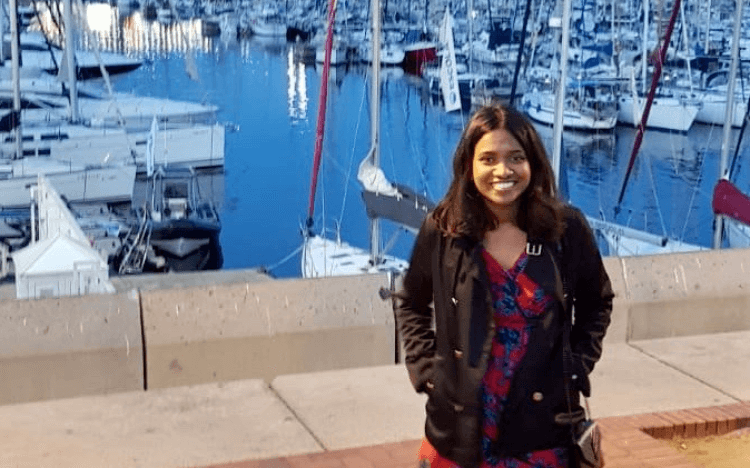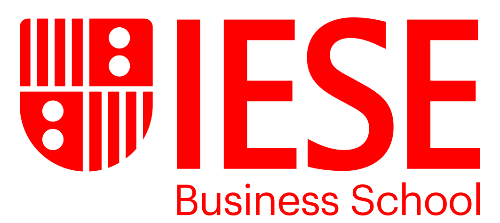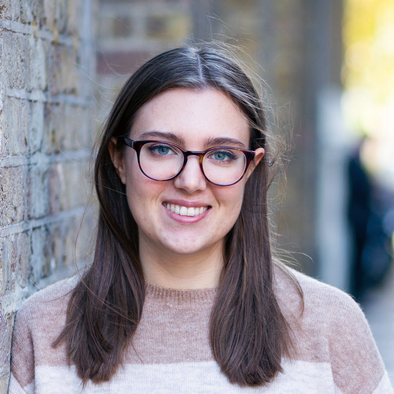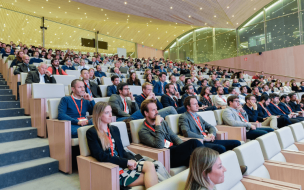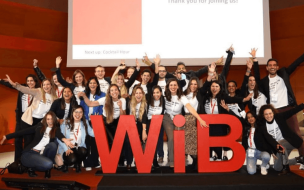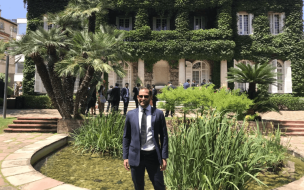“We used to spend weekends going to the oil and gas museum and look at rocks and drill bits,” she recalls. “I just remember thinking ‘that’s what I want to do as a career’.”
After pursuing an undergraduate degree in the US, she spent four years working for Occidental Petroleum in Texas, both out in the field and in business development back at their head office.
However, it was seeing a dramatic shift in oil prices over her years of work that made Prithi consider a new career. “I was wondering how sustainable that is on the industry, but I also wanted more career progression,” she says.
Having experienced a childhood full of big moves, first from India to the Middle East, and then to the US, it’s no surprise that Prithi was ready for another change, which is what led her to the MBA program at IESE Business School in Barcelona.
Why IESE
Prithi initially met an admissions officer for IESE at an MBA event in Houston, and after keeping in touch and learning more about the school, decided that it was the business school for her.
“The IESE MBA was 70-80% international students—in fact, the school has a student from almost every country I can think of,” Prithi remarks. “I thought I had an international background, but I was probably a snowflake in the middle of everyone else.”
The MBA at IESE prides itself on its diversity—85% of the class are international, with students hailing from all corners of the globe including Asia Pacific, North America, and Latin America.
From working on oil sites to jumping into the classroom, the MBA was bound to feel like a big change, and Prithi says the first term did feel a bit like a rollercoaster.
“In terms of managing my cases; the day-to-day studies; looking for a job; and the social aspect, the first term of the MBA was definitely the most challenging for me,” she says.
The IESE MBA opts for an almost entirely case-study approach, a teaching method championed by Harvard Business School, which means students are required to discuss real-life industry problems. In fact, students will approach more than 400 business cases during the program.
Over the course of either 15 or 19 months, students will also approach topics covering capital markets, entrepreneurial management, and business ethics.
With such a hands-on approach and so much to discuss, it’s natural that communication skills are tested—and Prithi says this massively helped when it came to working full-time in a global company.
“In terms of conversing and even just picking up the phone and calling a client now, you have to be cognizant of how people work in different cultures,” Prithi says. “Interacting with my peers on the MBA has definitely helped me with that.”
The value of an internship
As part of the 19-month MBA at IESE, students can spend three months on a summer internship—which is how Prithi ended up at Credit Suisse in London, in their investment banking division.
“I worked in the team covering the energy sector,” Prithi says, “so it was really helpful that I had that oil and gas background.”
Though IESE had a hand in landing her the lucrative opportunity—the school prides itself on its links to the finance industry—she makes it clear that “once you land the internship, it’s all your responsibility to convert that to a full-time role.”
In Prithi’s case, she succeeded, and now works full-time at the company as an investment banking associate.
“90% of the way to get into the finance industry is through an internship,” Prithi reveals. “So far, the biggest impact of the MBA has been that it’s helped me land a job.”
Adapting to a new career
Prithi’s goal when starting the MBA was to find a role that was “more high impact.” Reflecting on her MBA journey, has she found that?
“The first couple months at Credit Suisse were a very steep learning curve,” she recollects. “I’ve had a lot of advice from mentors at IESE and senior students that’s helped me to get where I am.
“Aside from that, the way your mind is shaped and the community you build are all massive values of the MBA,” she adds.
However, it’s not just support from IESE that has guided her through business school to a new career. As in her childhood, her father has also been an important figure throughout her MBA journey.
"He’s always been supportive of what I’ve done, and he guides me along the way,” Prithi asserts.
“It was very normal for me to pick the career path I did, but my father’s always been a very focal point for me. He lets me make my decisions, but he’s also there to listen to me.”


